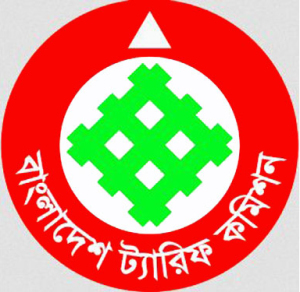Published in The Financial Express on Thursday, 24 March 2016
BD needs to look before joining TPP, says BTC
RMG to face more competition from Vietnam
Talha Bin Habib
 The Bangladesh Tariff Commission (BTC) in a study has said the country is neither in a position to join the Trans-Pacific Partnership (TPP) bloc nor it needs to do so.
The Bangladesh Tariff Commission (BTC) in a study has said the country is neither in a position to join the Trans-Pacific Partnership (TPP) bloc nor it needs to do so.
The BTC has also said the country’s ready-made garment (RMG) export will face a competition from Vietnam, a member country of the 12-nation mega-regional trading bloc.
The statutory organisation of the government working for protection of interests of local industries came to the conclusions after studying different aspects of the TPP deal.
The study report has already been submitted to the commerce ministry.
The trading bloc emerged following conclusion of the TPP negotiations among Australia, Brunei, Canada, Chile, Japan, Malaysia, Mexico, Peru, New Zealand, Singapore, the United States and Vietnam on October 5, 2015.
Under the agreement the member-countries have a vast scope to derive their mutual economic benefits through duty relief.
“We have been examining all aspects. We will take a decision on joining the TPP, once it appears necessary for us,” senior secretary of the Ministry of Commerce (MoC) Hedayetullah Al Mamoon told the FE.
He said Bangladesh’s exports get tariff-free access to markets in most of the TPP member-countries except the US under the least developed country (LDC) status.
So, Bangladesh stands to get no significant benefits in that area by joining the TPP bloc.
Among the TPP members, countries like Australia, Canada, Japan, Singapore and New Zealand grant Bangladeshi products tariff-free market access.
Rather, its income from duty on imports from those markets will fall, if Bangladesh joins the bloc, as, according to the BTC, the country will have to reciprocate to some extent by reducing import tariffs for the partner countries.
So, Bangladesh will face a fall in revenue earnings from import duty as TPP member countries like Singapore and Japan are two major sources of Bangladesh’s imports.
In the fiscal year 2015 the country sourced some 10 per cent of its total imports from Singapore and Japan.
Currently, import duties contribute around 27 per cent of the total revenue earnings.
Backing the BTC, Centre for Policy Dialogue (CPD) Executive Director Prof Mustafizur Rahman told the FE, “Right now, Bangladesh is not able to join the TPP bloc. We need to improve our standards including addressing the labour issue before joining the bloc.”
He said except the US, Bangladesh gets its products’ duty-free market access to other developed countries in the TPP bloc.
He suggested continuation of negotiations with the US government for gaining back the suspended Generalised System of Preferences (GSP) for the sake of its economic benefits.
Under the TPP framework, Bangladesh will get free-market access to the US, but to achieve that the country will need to improve standards in some areas.
Vietnam is already getting a better market access to the United States than Bangladesh. Currently, import of Vietnamese apparels by the United States is subject to 8.0 per cent duty on an average while it is 15 per cent for Bangladesh.
Under TPP, it will take at least five years for full elimination of tariffs by the member countries.
On implementation of the TPP deal, Vietnam will get further easier market access. But Bangladesh will be in a disadvantageous position.
So, ready-made garment export from Bangladesh will face some more competition from Vietnam in the US market, the BTC has pointed out.
In 2015, Vietnam exported apparels worth about $10.56 billion to the USA while Bangladesh exported apparels worth $5.40 billion.
The TPP member-countries will have to liberalise trade and investment under new rules beyond the purview of the World Trade Organisation (WTO).

